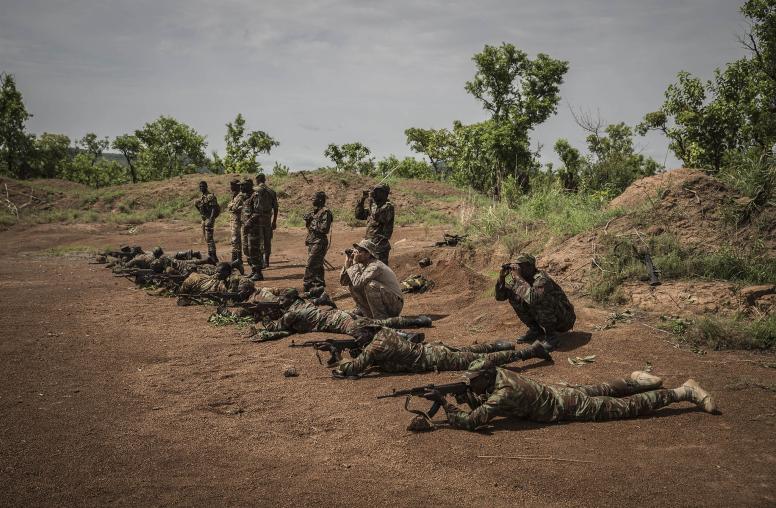Atrocity Prevention through Dialogue
Challenges in Dealing with Violent Extremist Organizations
Dialogue with violent extremist groups is a controversial practice, even when used to prevent widespread violence or atrocities. Humanitarian dialogue may serve as a crisis-mitigation instrument, offering short-term relief and civilian protection. When the risk of atrocities is remote, political dialogue can be used for structural or upstream prevention aimed at conflict resolution or addressing community grievances. Though dialogue as a peacebuilding tool has potential in any stage of a conflict, it is ideally undertaken before widespread violence occurs. However, the conditions for successful atrocity prevention through dialogue with violent extremist groups are rarely in place.
Summary
- Various forms of dialogue have traditionally been a central mechanism in the toolbox for atrocity prevention. The utility of this noncoercive peacebuilding practice merits reconsideration as violent extremist organizations (VEOs) increasingly embrace mass violence as a means to advance their objectives.
- If atrocities are imminent or ongoing, dialogue may serve as a crisis-mitigation instrument, with the potential of offering short-term humanitarian relief and civilian protection. When the risk of atrocities is remote, political dialogue can be used for structural or upstream prevention aimed at conflict resolution or addressing community grievances.
- Despite the broadening recognition of the need to engage extremist groups through dialogue when possible, controversy continues to surround this practice.
- The conditions for successful atrocity prevention through dialogue with VEOs are rarely in place. Those pursuing dialogue need to gradually build trust, conduct a thorough actor mapping, and reflect on their own role and preparedness to engage. Engaging extremists presents significant risks as well, including extremists’ manipulation of the dialogue to buy time for planning atrocity campaigns.
- Efforts to engage VEOs directly through dialogue have been inconsistent and are handled with the utmost discretion. Restrictive legislative frameworks may limit the ability to exploit opportunities for atrocity prevention through dialogue with these groups.
About the Report
This report reflects input gathered from United States Institute of Peace (USIP) desk research, interviews with practitioners, and round table sessions jointly convened in 2016 by USIP and the Brussels-based European Institute of Peace in Washington, D.C. (February 5), Brussels (February 23) and Nairobi (May 18); the session in Kenya was held in partnership with the Centre for Humanitarian Dialogue. The round tables gathered policymakers, practitioners, and academics with expertise in the area of dialogue with nonstate armed groups, the prevention of mass atrocities, and violent extremism.
About the Authors
Sofía Sebastián was a postdoctoral TAPIR fellow at USIP, where her research focused on UN peacekeeping and civilian protection. She is the author of Post-War Statebuilding and Constitutional Reform: Beyond Dayton in Bosnia (Palgrave Macmillan, 2014). Jonas Claes is a senior program officer at the Center for Applied Conflict Transformation at USIP, where he conducts research and analysis on the prevention of electoral violence and mass atrocities.



